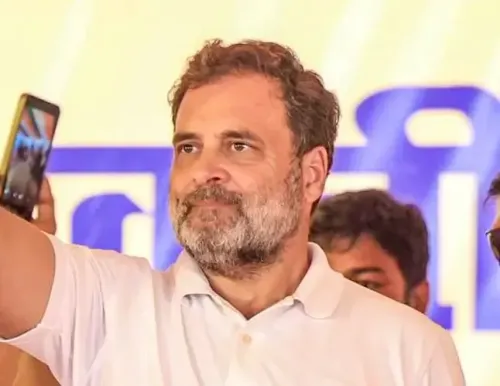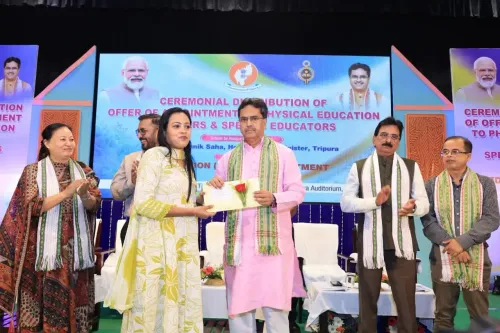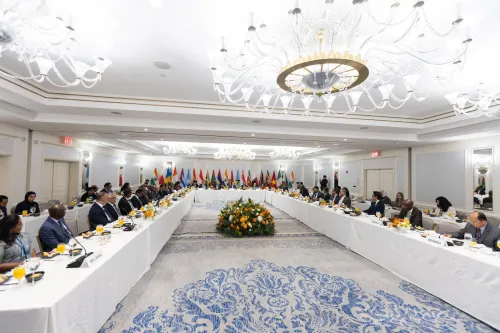What are the On-ground Realities and Regional Security Imperatives in Engaging with Kabul?

Synopsis
Key Takeaways
- Afghanistan's Foreign Minister is actively seeking global support.
- India has a cautious approach towards the Taliban.
- Humanitarian aid remains a priority for New Delhi.
- Regional security dynamics are influencing India's engagement strategy.
- Pakistan is viewed as an unreliable ally in the region.
New Delhi, Oct 9 (NationPress) Afghanistan’s Foreign Minister Amir Khan Muttaqi has been actively seeking global support for his struggling nation since taking office in August 2021. He has made multiple trips to various countries in pursuit of this aim, successfully navigating the United Nations travel ban on Afghan officials.
His planned visit to India was postponed due to the lack of UN approval last month.
Traditionally, New Delhi has fostered strong relationships with successive Afghan governments. However, given the current Taliban regime, which is characterized by its violent rise to power and its notorious record of oppression against women and children, India must proceed with caution.
Although advocating for an inclusive government in Kabul, India cannot completely disregard the Taliban, considering Afghanistan’s significant geopolitical relevance. The realities on the ground and regional security needs are compelling New Delhi toward a more pragmatic engagement.
While Russia is currently the only nation to recognize the Taliban government, China has acknowledged Kabul’s diplomatic representative in Beijing and maintains its own embassy in Afghanistan.
For Kabul, India is a vital ally, especially in times of crisis, as demonstrated during the COVID-19 pandemic and the recent earthquakes.
India has historically participated in several infrastructure projects with previous regimes, and the Taliban is urging New Delhi to continue these efforts. Moreover, India does not harbor expansionist ambitions and is seen as a more reliable partner compared to Pakistan, which has a history of inconsistency.
Recently, Islamabad has bombed Afghan territories and is involved in border skirmishes. Additionally, numerous Pashtuns are being forcibly returned to Afghanistan under uncertain circumstances.
Thus, Muttaqi had initially planned a visit to India but was waiting for the right moment and necessary UN approvals. In May, he engaged in dialogue with India’s External Affairs Minister S. Jaishankar during India’s operation Sindoor, which followed a terror attack in Pahalgam by Pakistan-trained terrorists.
Before his anticipated trip to New Delhi, he attended the Moscow Format Dialogue on October 7, where India, alongside China and Russia, opposed former US President Donald Trump’s
Muttaqi and other Taliban officials have frequently traveled to Doha, Qatar, where the Taliban maintains a political office. Some of these visits, such as that of Deputy Prime Minister Abdul Salam Hanafi in August, were for medical purposes, necessitating a UN waiver.
Despite strained ties, Afghanistan’s Foreign Minister has also visited Pakistan for discussions with officials. During his upcoming visit, Muttaqi intends to talk about bilateral cooperation, trade, humanitarian assistance, and regional security with his Indian counterpart, potentially leading to calls for formal recognition.
India’s cautious approach towards the Taliban-led government sharply contrasts with the more aggressive and practical stances taken by both Russia and China. While India prioritizes humanitarian aid, regional stability, and counterterrorism, Russia and China have strengthened their relationships through diplomatic recognition, infrastructure investments, and security collaboration.
This divergence highlights the differing strategic priorities, threat assessments, and geopolitical aspirations at play.









